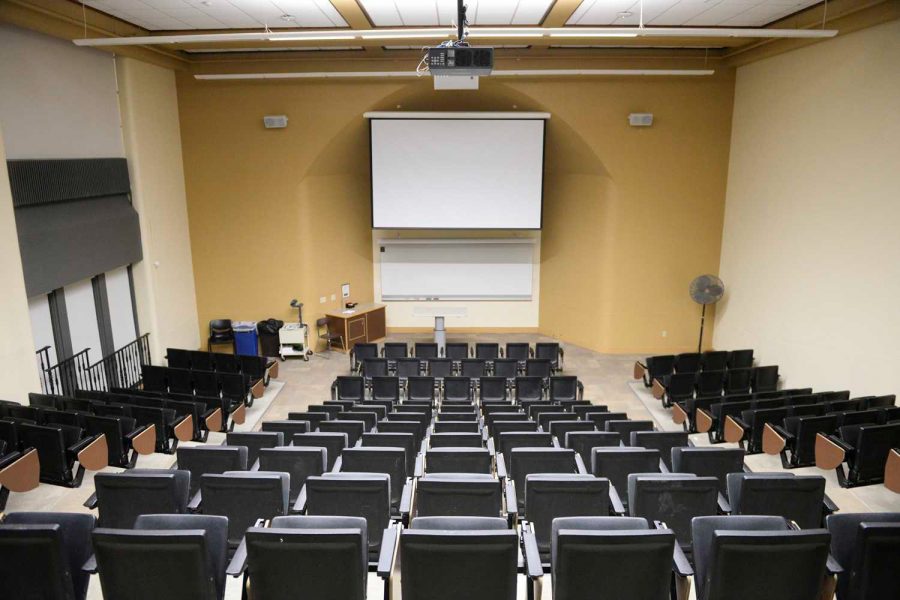Educational Policies Committee talks diversity requirements, classroom capacities
July 21, 2020
Meeting times for classes held on Monday, Wednesday or Friday will likely be modified in the coming weeks to accommodate longer “passing periods,” Pitt officials said Monday.
Joe McCarthy, the vice provost for undergraduate studies, said meeting times can change by anywhere from five minutes to an hour, depending on the class’ original start time. Extended passing periods — the time between class periods — should be used by students and faculty to disinfect their classroom space before and after instruction, McCarthy said. Tuesday and Thursday class schedules already accommodate 15 minute passing periods and will not be affected by this change.
“Meetings that were to take place on a Monday, on a Wednesday or on a Friday will have their meeting times changed slightly if they did not start at 8 a.m.,” McCarthy said. “Eight a.m. is going to be our reference time. That class will start at the same time as always, but will expand by five minutes each hour after that.”
The University Senate’s Educational Policies Committee met Monday to discuss plans for fall semester and possible changes to the University’s diversity general education requirement.
McCarthy said the University is in the process of assigning all classes a physical meeting place for students seeking in-person instruction, and all classes should be placed within the next two weeks. However, classroom capacities for fall semester will shrink to 20%-30% of normal operation.
“It’s a moving target,” McCarthy said.
He suggested students, staff and faculty reference Pitt’s Standards and Guidelines page for up-to-date information on facilities, academics, employee standards and other tenets of the return for fall plan.
The committee also discussed a petition created by Pitt alumna Sydney Massenberg, which called on the University to include a Black studies course as part of general education requirements. John Stoner, a committee co-chair, suggested the committee establish a working group in conjunction with the University Senate’s Equity, Inclusion and Anti-Discrimination Advocacy Committee to create a proposal for the changes to course requirements.
McCarthy said while it may not be the right solution “in perpetuity,” a single Black studies course required for all students would be administratively easier to implement than a change to the general education requirements of each school at the University. He said modifying the curriculum of all five undergraduate schools would require each school to submit a proposal to change their academic requirements.
Stoner said creating a single course around such a broad field of study puts pressure on the University to ensure that it is the “right course” and that the course material be designed by experts of the field. Instead he suggested Massenberg’s idea of modifying Pitt’s existing general education requirements alleviates the burden to “reinvent the wheel.”
“To make students take a specific course would of course put all the more pressure in making sure that course was the right course,” Stoner said. “If we think about the alternative of Sydney’s proposal, those courses exist.”
Senate President Chris Bonneau echoed Stoner and said a single course may be able to cover a broad range of topics, but would not be able to successfully teach the topics in depth. In addition, Bonneau said, creating a “menu of classes” for students to choose from will increase student engagement.
“When I had to take a certain class that was required, it was just dreadful if you weren’t interested at all,” Bonneau said. “Whereas, if there was a menu, you can find something that fits with your major.”
Stoner said the committee would assemble a group of students and faculty to serve on the working group later this week.
“We’re not just looking for a social justice course, but in this case a more focussed and tailored one,” Stoner said.
A previous version of this story referred to Joe McCarthy as the senior vice chancellor for undergraduate studies. His title is vice provost for undergraduate studies. The article has been updated to reflect this change. The Pitt News regrets this error.








